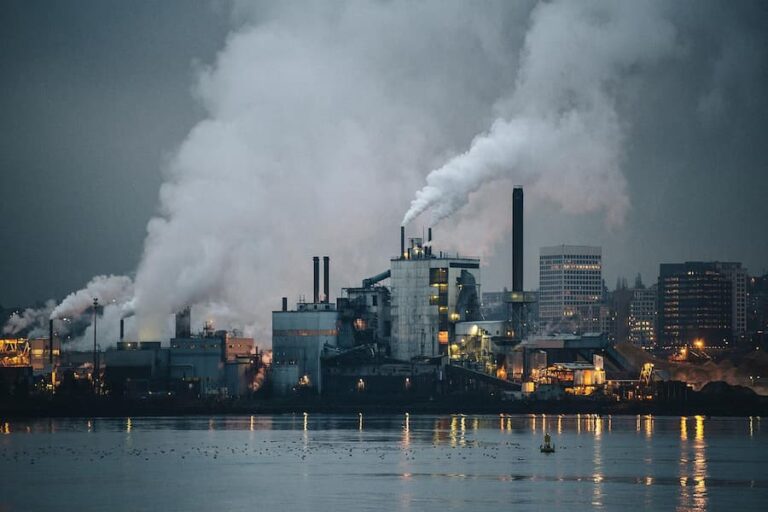The present world faces numerous environmental issues of which industrial waste pollution is one of them. This is due to the emission of poisonous gasses from factories and industries into the atmosphere, water bodies, or lands that affect the ecosystem, wildlife, and even humans. Proper waste management techniques, such as employing skip hire locally, can considerably reduce such pollution. Let’s discuss the root causes that have led to industrial waste pollution and provide practical solutions on how to abate its effects.
Sources of Industrial Waste Pollution:
Poor Waste Disposal
Industrial pollution mainly results from poor waste disposal. Most industries produce huge amounts of waste in the form of chemicals, metals, and other non-biodegradable materials, which remain in landfills, rivers, and oceans and are not treated. This leads to contaminated soil and water. Toxic materials such as heavy metals can pollute the ground through leaching that will be slow enough to alter the environment eventually.
Hostile Chemicals
The other important aspect that affects the health of human beings is through industrial processes involving toxic chemicals. Industries involved in the textile, paper, and refining of petroleum products let pollutants in the form of sulfur dioxide and mercury into the air and water. These chemicals, after emission into the atmosphere, would subject natural ecosystems and local communities to serious health problems, such as respiratory diseases.
Absence of Recycling Efforts
There are quite several businesses that do not consider recycling. It is for this reason that there has been a rise in the generation of industrial waste. In this respect, companies have turned out to dump materials instead of recycling them. This further degrades the environment. Recycling can contribute much to the decrease in volume and reduction in pollution in waste.
Weak Regulation
Most industrial waste pollution is persistent due to a lack of stringent law enforcement towards the environment. Though most countries have put laws in place, the industries have never taken them seriously since there is always a lack of oversight. This, therefore, constantly hampers and widens the pollution levels.
Solutions to Industrial Waste Pollution:
Sustainable Waste Management
A simple and prime solution to minimizing industrial waste pollution is through sustainable methods of waste management. Recycling, reusing, and safe disposal of them are some ways through which the same shall be achieved. For those industries that generate a lot of waste, local hire helps them in the management and segregation of the same without which it will not be disposed of properly or even recycled. Hiring waste management companies ensures following local waste disposal regulations while minimising the impact on the environment.
Environmentally Friendly Manufacturing Processes
Industries may then further reduce their impacts on the environment as they employ more sustainable production methods. These include the use of biodegradable materials, reducing the amount of harmful chemicals used, and the control of their processes to yield less waste. As an example, closed-loop manufacturing allows industries to recycle wastes into the production chain such that waste output is minimal. Industries can also invest in cleaner technologies, such as energy-efficient machinery and equipment using pollution control devices, to lower their overall environmental impact.
Recycling Programs
Firms should have comprehensive recycling programs aimed at the various types of waste products, paper, metal, and plastic, which are processed and reused. Recycling directly saves material from landfills and reduces the need for primary material extraction. Taxes may also sometimes help persuade companies to invest in waste management activities and, therefore, make recycling a more prudent business move, as in the example above.
Strengthening Environmental Laws
In addition, regulations by the government and supervisory mechanisms should be made stricter to prevent improper disposal of waste in the industries. There must be punishment in case of no compliance; besides, the industries that take proper means are encouraged by giving them some incentives. Strengthening the structures of regulations will lead to an accountable system and a reduction in industrial waste pollution over the course of time.
Conclusion:
Industrial waste pollution is serious, but, at the same time, there are practical measures by which control of it can be exercised. Sustainable practices in waste management may keep local industries on the right track for responsible waste disposal. The best steps toward remediation of the pollution level and preservation of our earth for our children would be through a shift to alternative ecological manufacturing, adoption of recycling programs, and strict enforcement of environmental restrictions.
Visit Classy World for more informative blogs.


